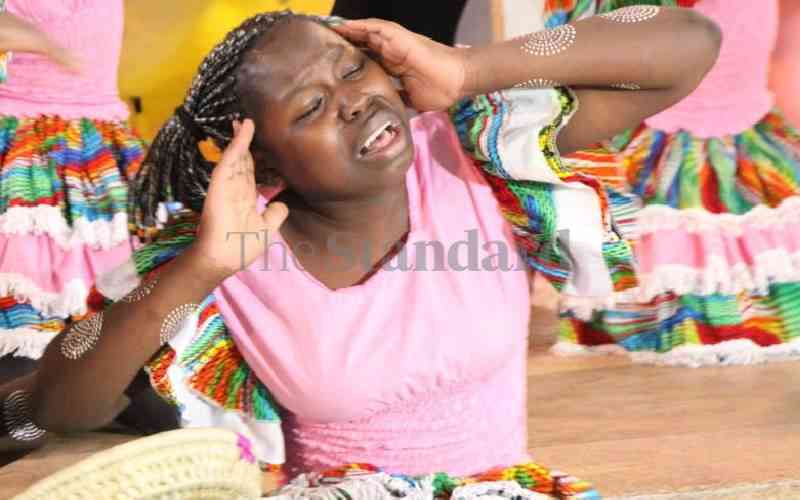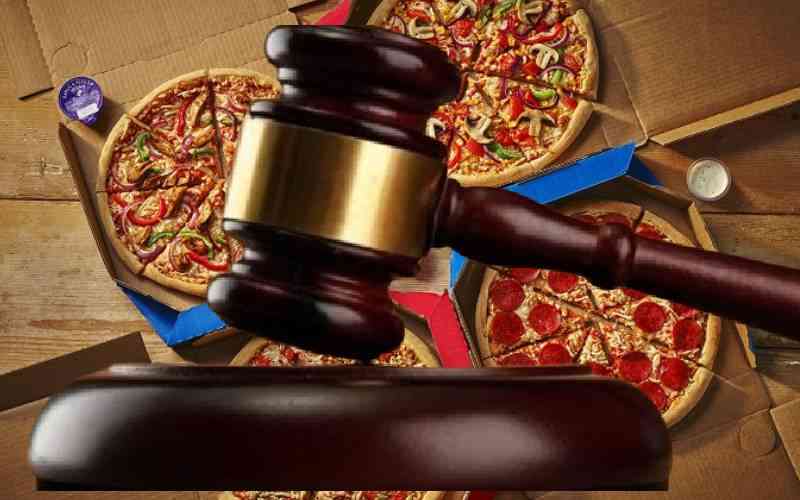“I have lost about two-thirds of what I used to make during such days,”
For Yassin Ahmed, a goat seller in South B Estate in Nairobi, the Islamic Eid al-Adha day is a day to make a kill.
Normally, he would be smiling all day long, as he attends to his infectious customers who keep streaming in and out of his make-shift stall to purchase a goat or two.
The less fortunate ones would at least buy a kilogram of meat that goes at around Sh 400. The goat price varies from Sh5000 to Sh10,000 according to size and fat.
After hours of trade that normally begin on the eve of the big day, Yassin would be struggling to count the notes that pass through his hands.
He would have assistants to help him keep accurate records and return change to his overlapping customers.
However, the season of spending is no more. This time round only a handful of customers come, preferring to buy a piece of meat instead of a full goat.
From a distance, I could see him quarrel with a customer who complains of the high cost of the on-demand commodity- goat meat.
After unsuccessful negotiations, the customer leaves. He grins with a dark face. Dampened by the Covid-19 flue.
“They don’t understand that I also buy these goats from other people who sell them to me at a hiked price, “he laments, after I ask why the customer left.
He reveals to us that unlike last year when he would sell around 500 goats, this year, he has only managed to do 150.
It is about noon and this means he might only manage to sell a few more before its lunchtime. After that time, nobody bothers to please family with a piece of meat.
“The Covid-19 pandemic has dealt a blow on us. I don’t think I can even make a quarter of what I made last year. People are broke,” he says.
He explains to us that most of his customers have had to survive without a job, after they were sent parking due to the deadly virus.
Hundreds of thousands of Kenyans have remained jobless since then which translated to fewer coins in their pockets to afford meat and other commodities considered luxurious by the majority of Kenyans.
According to the Kenya National Bureau of Statistics (KNBS) as at the end of 2019, there were 2.9 million Kenyans in formal employment.
Stay informed. Subscribe to our newsletter
However, this number has drastically reduced due to a wave of lay-offs and forced leave experienced in various sectors that have been hit hard by the pandemic.
Yassin understands this enough, and thus, decides to appreciate for the cup that he considers half full.
The young vendor is just one of the business people who have had to count losses due to the Covid-19.
Others including street fruit vendors and cloth sellers among others have had to adjust to the new normal.
Around the Jamia Mosque in Nairobi, where many sellers parade Islamic clothes and artifacts, the situation is not any different.
“I expected to see people come to worship around today, but there was nobody. That means no sale for us,” says Amina Abdala, a vendor at Jamia Mosque in Nairobi.
At the closed gates is a notice in bold, “Kindly note our congregational worship is suspended until further notice”
The number of women who normally sit around the mosque is small today, as compared to other days.
One of them tells us that their colleagues predicted a deserted place and chose not to engage in a losing battle.
It is an Eid-al-Adha celebration with a difference, courtesy of the Covid-19 pandemic. An event darkened by a cloud that has hung for close to six months now.
However, as millions of Muslim faithful in the country join the rest of the world in marking this year’s Eid al-Adha, many have chosen to adjust to the crisis.
The adjustments meaning that losses would be inevitable. The end of the crisis seemingly not on sight.
Similarly, President Uhuru Kenyatta has wished the Muslim brothers and sisters a blessed festivity, cautioning them against the spread of Covid-19.
“As we celebrate Eid-Al-Adha, let us remember that in times of crisis, it is personal sacrifices that ensure triumph over difficulty,” read a statement from the State House.
The second major Muslim celebration, is a season of giving back to the society. Believers are expected to remember the less fortunate in the community and share with them.
Thousands of Goats, sheep, cows, and camels are sacrificed to reflect Prophet Ibrahim's willingness to sacrifice his son Ismail to God.
 The Standard Group Plc is a
multi-media organization with investments in media platforms spanning newspaper
print operations, television, radio broadcasting, digital and online services. The
Standard Group is recognized as a leading multi-media house in Kenya with a key
influence in matters of national and international interest.
The Standard Group Plc is a
multi-media organization with investments in media platforms spanning newspaper
print operations, television, radio broadcasting, digital and online services. The
Standard Group is recognized as a leading multi-media house in Kenya with a key
influence in matters of national and international interest.
 The Standard Group Plc is a
multi-media organization with investments in media platforms spanning newspaper
print operations, television, radio broadcasting, digital and online services. The
Standard Group is recognized as a leading multi-media house in Kenya with a key
influence in matters of national and international interest.
The Standard Group Plc is a
multi-media organization with investments in media platforms spanning newspaper
print operations, television, radio broadcasting, digital and online services. The
Standard Group is recognized as a leading multi-media house in Kenya with a key
influence in matters of national and international interest.








